
UKC has received an open letter signed by 77 GB Climbing athletes, parents and coaches describing a 'loss of confidence' in the organisation's leadership due to 'continued failures to meet its obligations.' The letter was sent to the British Mountaineering Council - the National Governing Body that runs GB Climbing - and was signed by 73% of the current 2023 GB Climbing Team (Lead and Boulder) demanding 'immediate and urgent action.'
The open letter follows the publication of the Competition Climbing Performance Group (CCPG)'s review into the management of its competition climbing program earlier this month (UKC News).
The CCPG oversees the BMC's work in managing competitions and GB Climbing squads. The report identified 'a number of issues with the processes, the culture and the approach within GB Climbing.'
These issues within GB Climbing form part of a wider management and financial crisis at the BMC, following announcements this summer of redundancies, overspending and a projected 2023 deficit of over £275K without suggested 'course corrections.'
UKC received the open letter after it was sent to the BMC President, the Board of Directors, and the Chair of the CCPG.
We contacted the BMC and GB Climbing to give a right of reply. Their response is included at the end of this article.
This Tuesday (19 September), CEO Paul Davies resigned citing personal reasons (UKC News).
The letter reads:
UKC has spoken to people involved with GB Climbing, who wished to remain anonymous. They raised concerns about what they viewed as restrictive selection policies, a lack of funding and fading trust in management.
"The reason we're drafting this open letter is because the problems are affecting people across the board, including seniors, juniors and the Paraclimbing Team — we've all experienced the same issues," an athlete told UKC.
"Our young athletes make huge sacrifice to climb at the highest level, giving up almost all their free time to train and compete to the best of their ability," a parent of a junior GB Climbing athlete commented. "Our NGB should be giving those willing to make such sacrifice the best chance to reap the rewards, but instead it feels like GB Climbing exists to serve its own priorities—time and time again they tell us they are learning lessons but we are watching our children miss out year on year as a result of their mistakes."
Unfilled Quota places at IFSC events
A primary grievance of the athletes is a reported reluctance of GB Climbing selectors to fill quota places allocated to GB athletes by the IFSC, despite travel and accommodation largely being self-funded by the athletes or parents. Across the 2023 season, only 76% of senior quota places allocated to GBR athletes were filled.
While GB Climbing selection policy focuses on prioritising athletes with Olympic potential, athletes described a chicken-and-egg situation where stringent criteria is locking less experienced athletes out of competitions and stalling progression. "The answer they've given us is that we're not good enough — but the issue with that is how do they expect us to get good enough without gaining experience?" one athlete told UKC.
In some cases, one athlete said, selection decisions were hindering the potential of athletes who could earn further World Cup points and qualify for major events, including the Olympic Qualifier Series next year. The small field of athletes, combined with fewer reaching top-40 overall World Cup rankings, means that allocated quota places in IFSC events for GB athletes will be cut by next year.
"We feel like they're stifling British competition climbing," one athlete commented.
This restrictive approach to selection has affected junior athletes more significantly. In another open letter sent to the CCPG (Competition Climbing Performance Group) earlier this year and seen by UKC, 35 parents criticised the strict policies, a lack of consultation and a decision not to attend 50% of junior IFSC events in 2023:
In the 2023 season, GB junior athletes filled less than 50% of the allocated quota places across each age group (U20 - 20%; U18 - 49%; U16 - 49%). Without parental intervention, the numbers for these categories would have been 17%/39%/41% respectively.
Inconsistent and unclear selection criteria
Alleged shifting goalposts when it comes to selection policies have also caused athletes stress and upset. According to the athletes we spoke to, the policy changes year on year and has often been published following national competitions and selection events (such as the British Bouldering and Lead Climbing Championships) [Note: the 2024 policy was announced before the BLCCs this month].
Frequently, junior and senior athletes have been held to different qualification standards for the same events, interviewees claimed. For example, youth athletes who had made World Youth Championships semi-finals would be selected for trials over senior athletes who had fallen short of senior World Cup semi-finals, while the two fields of competition are vastly different. Respondents criticised a policy that often prioritised World Cup experience for young athletes (age 15/16) over older competitors.
Selection events 'not fit for purpose'
An earlier open letter (seen by UKC) from elite commercial coaches criticises a 2023 selection event for juniors on senior World Cup-level boulders, which were too difficult for young climbers and injured some participants, as being 'not fit for purpose' while highlighting safeguarding concerns.
The athletes we spoke to criticised another botched selection event with 'hold number' criteria - e.g. 'score hold number X to be selected' - which did not sufficiently separate the field, and had to be rerun at a supplementary selection day. Although certain climbers might be top-ranked in the UK and be eligible to fill quota places, this criteria was said to be an attempt to quantify their 'readiness' level against IFSC World Cup standards. This approach has prevented some people from gaining valuable experience on the circuit, athletes said.
The climbers commented that unlike other sports such as swimming, where recording a specific time in training or selection could be considered a reliable indicator of an athlete's form, the variable nature of route setting in climbing competitions makes establishing norms and performance thresholds based on holds reached less reliable.
Overspending and a Lack of Athlete Funding
Broader questions about GB Climbing's overspending and its funding contributions from UK Sport and the BMC have been raised in recent months. The CCPG report revealed that GB Climbing had 'significantly overspent' its 2022 budget (the 2022 BMC Annual Report indicates a £180K shortfall).
Since the £1.5M UK Sport 'Progression' funding awarded to the BMC/GB Climbing is ringfenced for coaching, training, support personnel and direct support for medal-potential athletes, this money does not cover the costs of most individual athletes' competition travel and accommodation. Instead, athletes largely self-fund most events, with some exceptions such as the IFSC World Championships. GB Climbing's additional income sources include commercial partnerships, competition entry fees and an agreed contribution from the BMC to the UK Sport and Sport England funding.
Athletes claimed that organisation of competition travel logistics was sometimes poor and last-minute, leading to higher costs to cover themselves. A lack of funding was described by interviewees as a serious limitation, which restricts not only which events athletes can participate in if selected, but also the time and energy they can dedicate to training. Seniors reported having to combine near full-time work with training, which means that they cannot train "to anywhere near the same level" as athletes of other nations who are fully or part-funded by their governing bodies.
A loss of trust
Those we spoke to voiced fears of speaking out in case their grievances might jeopardise future selection opportunities. Athletes explained that a line had been added to their GB Climbing contract stating that they must agree to conduct themselves 'in a correct and proper manner' which 'does not bring the BMC, the sport, Corporate Partners or the Athlete into disrepute.' Although interviewees said that they were promised by management that bringing a complaint forward would not impact selection chances, some reported feeling that they couldn't be sure of this due to the changing criteria.
The future for GB Climbing and its athletes
When asked what changes they would like to see to improve the situation at GB Climbing for stakeholders, one parent commented:
"Positive transformation means putting athletes first, opening all opportunities to compete internationally, and for those who break through to international elite status, supporting their journey to international medals," they told UKC. "Access, safety, and support are the three core deliverables—get these basics right and success will be better enabled."
***
Earlier this month, the BMC outlined its progress across seven areas (safeguarding and risk; financial management; communication; commercial contract management; governance; partners; and GB Climbing and the CCPG) in an article following the presentation of the CCPG report to the Board Chair in December 2022. Acknowledging the issues, they concluded:
'We are, however, committed to working together with the community on this shared journey, to continue to develop our athlete-focussed performance infrastructure, to support our athletes.'
In response to the letter and UKC's reporting, the BMC said:
'We acknowledge the content of the letter which highlights issues identified in the recently published Competition Climbing Performance Group (CCPG) review (1st Sep). The review highlighted areas where improvement is needed. We have accepted and recognised this and are committed to achieving positive change and delivering better outcomes for those that have been impacted, including signatories of the letter.
Prior to, and since, the publication of the review we have been working to address the issues highlighted, an update was provided with the publication of the report.
One significant recent step has been the establishment of 'listening sessions' for key stakeholder groups including athletes, parents, coaches and staff, led by our independent Chair of CCPG, providing safe spaces for detailed and specific issues to be raised, which we aim to conclude by the end of October.
We are aware that some of the issues highlighted cannot be solved overnight and appreciate the frustrations that exist as a result but we are engaging proactively and transparently to achieve positive change as quickly as we can.
This is a process the Board of Directors are committed to see through to its conclusion, delivering the improvements necessary for better outcomes. The Board will do this by working openly through the staff and volunteer team with stakeholders and partners including UK Sport.
We appreciate the continued contribution and support of our members and wider climbing community. We are always grateful for feedback such as provided to the CCPG review team, and in this letter; even when it is 'difficult to read'; we know it is with a view to improvement. We strongly encourage participation from the relevant stakeholders in the sessions over the coming month. After which a full update will be provided.'
Additional comments from the BMC on specific points raised in this article:
'The 2023 strategy was to: Accelerate athletes achieving relevant performance standards to maximum quota places for the 2024 Paris Olympic Games, Boulder & Lead Combined event; accelerate athletes achieving relevant performance standards and achieve Paris 2024 medal success; to continue to evolve the GB Climbing High Performance Programme by provide opportunities and experiences for the long-term development of athletes who have the ability to deliver podium success at future world level competition including, LA 2028 and Brisbane 2032 Olympic Games and to field a competitive World Cup team with athletes capable of attaining a top 40 World Ranking.
'Athletes have been fielded to IFSC events, in line with the above strategic objectives. As the NGB for competitions in climbing (sport climbing), paraclimbing, ice climbing and ski-mountaineering, we have a responsibility and duty of care to athletes, and their support networks, to ensure they have the appropriate level of challenge at the appropriate time on their development journey.
'Our pathways have further evolved and the selection policies for 2024 have been developed through an extensive and thorough consultation process with all key stakeholders, and the current versions are now published online. This process resulted in our new combined policies for the GB Squad and Teams (previously separate for juniors and seniors). The changes made better align to our strategic objectives as outlined in the Annual Performance Strategy.
'[The junior boulder selection event] has been thoroughly investigated through our safeguarding team following our processes. From the information gathered, the conclusion drawn was that there is no evidence to indicate that an increase in injuries occurred at the event. Whilst the concerns did not constitute any breach, we are continually making improvements in the delivery of future activities. The BMC is absolutely committed to ensure an independent and rigorous safeguarding process, and assure competitors and parents that reports made to safeguarding will never affect selection decisions.
'Route setting is not an exact science, and every effort is always made to set a route for an appropriate level. Participation events are set to the standard of entrants, whereas selection events are set to the relevant/higher standards, differing from England through to GB. We have learned a number of lessons from the 2023 selection events and will be applying these lessons to the design of selection events in 2024.
'Over 2023 we have implemented new finance systems and processes. We continue to implement this throughout the organisation and GB Climbing. We also continue to work with UK Sport on the development of the programme and potential increase in funding as a result.
'With specific respect to CCPG & GBC, the role of CCPG in reviewing and approving GBC budgets and spending has also been improved, and the Board are working with the Chair of CCPG to ensure this delivers an appropriate level of oversight whilst retaining the legal accountability and responsibility for all UK Sport (UKS) and Sport England contracts. This includes a focus on efficiencies around logistics and travel.
'During conversations with stakeholders in our listening process we are making it absolutely clear that we value feedback, however negative, and that there will not be repercussions for athletes as a result.'
Read our recent interview with BMC CEO Paul Davies on the state of BMC/GB Climbing:
Read the CCPG Review findings:
For more background about the BMC redundancies and a broader picture of what's happening at the organisation:



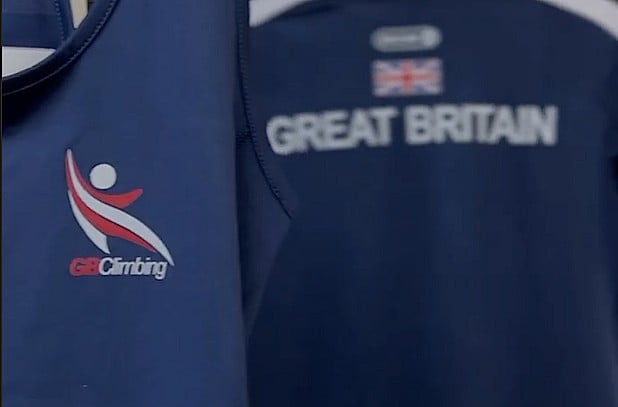
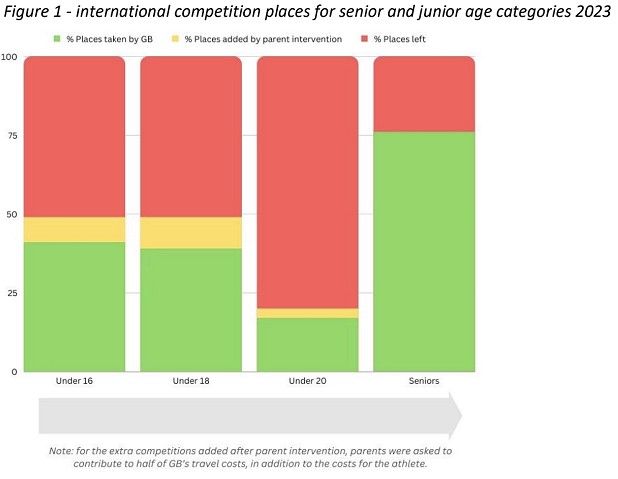




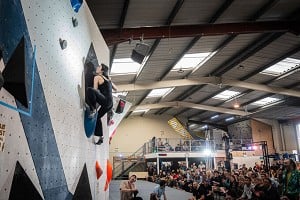


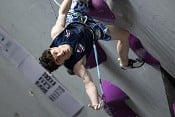
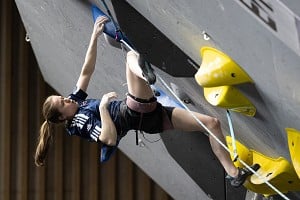
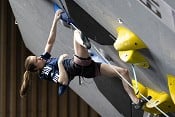
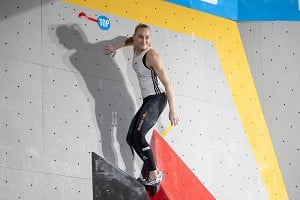
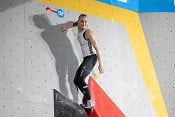
Comments
Hopefully GB Climbing does genuinely listen, not just in the set aside sessions, but also the rest of the time.
Just been to get an extra portion of popcorn.......
I think the time for listening has passed. It’s clear that the senior leadership need to step aside. And if they will not do that on their own the BMC leadership need to ensure it happens. You can’t have management of a national team which has completely lost its athletes (see Spanish women’s football). There has been continual ‘listening’ for the last 3 years - there comes a point where you just have to say people are not up to the job.
What a mess. One glimmer of hope is that the newish Chair of the CCPG, Paul Ratcliffe, appears to have the support of the comps community. I hope the Board will give him the support and backing to do whatever is required to steer the way out.
Finally had time to sit and read the article accompanying the letter and the response (driving back from northern Germany).
My thanks for a balanced and obviously well-researched piece. 👍